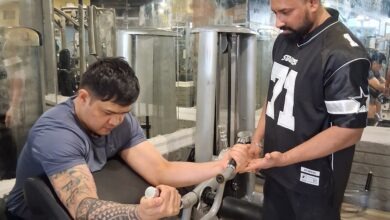
Irritable Bowel Syndrome (IBS) is one of the most common digestive disorders worldwide, affecting millions of people with symptoms such as bloating, abdominal pain, diarrhea, and constipation. While nutrition plays a central role in managing IBS, a powerful nutrient often misunderstood is fiber in the diet.
In fact, there are two main types: Soluble and insoluble fiber and each interacts with the gut differently. For people with IBS, understanding these differences can mean the difference between calm digestion and a flare-up. Let us look at the differences between these two fibers.
Soluble fiber dissolves in water and forms a gel-like texture in the digestive tract. This slows down digestion, helps regulate blood sugar, and promotes a regular bowel rhythm. For IBS sufferers, soluble fiber is often considered the gentler option.
Examples of soluble fiber foods include oats and oat bran, psyllium husk (a common supplement for IBS); apples, pears, and citrus fruits (with their peels); carrots, zucchini, and sweet potatoes.

Insoluble fiber, on the other hand, does not dissolve in water. Instead, it adds bulk to stools and speeds up movement through the intestines. This can be too harsh for IBS patients, often worsening symptoms such as bloating, cramping, and diarrhea.
Examples of insoluble fiber foods include, wWheat bran and whole wheat products, nuts and seeds, cauliflower, broccoli, cabbage, dark leafy greens (kale, spinach), corn and popcorn
People with IBS often receive the advice to eat more fiber, but without distinguishing between the two types. Research consistently shows that increasing insoluble fiber may worsen symptoms, while increasing soluble fiber often provides relief
A few practical tips for IBS patients:
- Start with soluble fiber: Introduce gentle, soluble-rich foods first, such as oatmeal or chia seeds.
- Go slow: Adding fiber too quickly can cause gas and bloating. Increase gradually and monitor symptoms.
- Mind portion sizes: Balance is key.
- Hydration is essential: Fiber needs water to work properly. Drink plenty of fluids, especially if taking fiber supplements.
Fiber is not the enemy in IBS. It is a powerful tool when understood and used correctly. Soluble fiber, in particular, is often a friend to the sensitive gut, helping to ease both constipation and diarrhea. Insoluble fiber, while beneficial for general gut health, should be approached with more caution in IBS management.
By paying attention to the type of fiber consumed, IBS patients can shift from fear and frustration to greater control and comfort in their daily lives.
To subscribe to my diet programs,
don’t forget to log in to:
www.eatlikemira.com.













